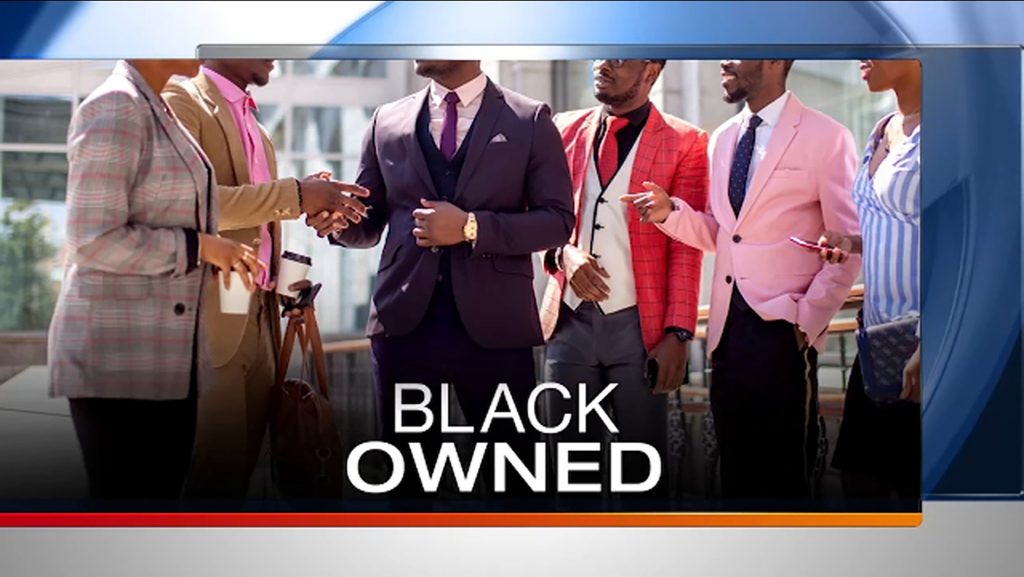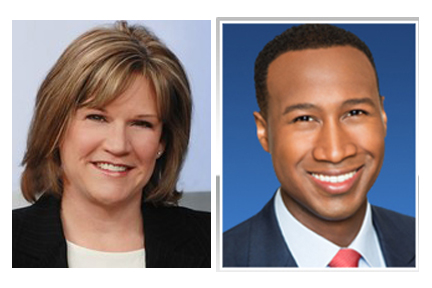
Goodbye, Aunt Jemima. Hello, Michele Foods.
Just as the image of Aunt Jemima started disappearing from supermarket shelves, a viewer email about a real-life Black female syrup entrepreneur caught the eye of a Chicago news director — and helped inspire an innovative new series.
“It was kind of like, who needs Aunt Jemima?” said Jennifer Graves of WLS-TV. “We’ve got a local syrup maker.” The businesswoman’s name is Michele Hoskins, her brand is Michele Foods, and she is the only Black woman selling syrups in the country. The timing to tell the story of her syrup empire based just outside Chicago was perfect.
The ABC-owned station was looking for a way to report on the impact of both the pandemic and the movement for racial justice on local businesses.”I was thinking about how to do that story,” Graves said. “I just came up with the idea: why don’t we pick a week and focus on one Black-owned business a day?”
Graves challenged her 11 a.m. team to find a diverse group of locally-based, self-made Black business owners to feature on the show. The result: the station’s newest initiative, BLACK OWNED, a timely series featuring live discussions between Black entrepreneurs across Chicago and anchor Terrell Brown. Michele Foods was one of the five businesses highlighted during the July 13-17 series.
“[Michele Hoskins] said that one of her struggles in the very beginning was just trying to learn the manufacturing world,” Brown said. “There weren’t many people there that looked like her and were endeavoring to do what she was trying to do.” Over 35 years later, Michele Foods syrups are now in more than 8,000 stores around the country — and Aunt Jemima’s “retirement” has helped boost sales.
Watch Terrell Brown’s interview with Michele Hoskins from Michele Foods
Despite a wide cross-section of other business owners spotlighted for the series — a theater owner, a dentist, a custom clothing designer, and a winemaker — each entrepreneur’s story echoes Hoskins’s. “Through the course of the week, it’s been so enlightening to hear from these Black business owners who have this incredible drive and passion, and each of them has their own stories of persistence and struggle,” Brown said.
Watch the interview with Jackie Taylor, founder of The Black Ensemble Theater
Brown received widespread support for the series on social media, over the phone, and via email. Not just from the business owners, he said, but from community members who called to say, “Thank you for sharing our stories.” Given the positive anecdotal response, WLS is already looking into another BLACK OWNED week in August, and possibly a recurring series.
For Graves, it’s not about the ratings.“I don’t think I’d look at whether or not a minute by minute tells us that it’s popular,” Graves said, “I think it’s the right thing to do, especially with the stories being as inspirational as they’ve been.”

Graves believes the inspiration adds value for viewers and her newsroom alike. Between the devastating economic impact of COVID-19 on small businesses and communities of color and the fight for racial equity, 2020 has heightened the importance of diverse community voices in newscasts. For Graves, the five business owners featured in BLACK OWNED provided a welcome alternative to the usual parade of “experts” on TV.
“Let’s look to have a group of experts that are more diverse and represent the entire community,” said Graves, “and I think this just feeds off of that and shows people that there are winemakers and dentists and theater operators and owners of color out there who are role models for communities.”
Terrell Brown said that a series like BLACK OWNED enhances coverage of the sensitive topic of race by filling out the broad brushstrokes of hard news. “We’re asking questions now that we weren’t asking before in our coverage, and I’m really happy about this, especially here [at WLS]. We’ve become more nuanced in the storytelling, we’re becoming more specific. And we have to become more specific in order to tell the narrative correctly.”
For Jennifer Graves, BLACK OWNED proved to be a simple yet effective form of community outreach: amplifying local voices. “If these business owners are able to say, ‘These are the struggles that I went through,’ we can help try to try to advance the narrative that might have some impact for the future,” said Graves. “So that’s the best of what we do. And we can play a small part in that. That’s what’s exciting about it.”